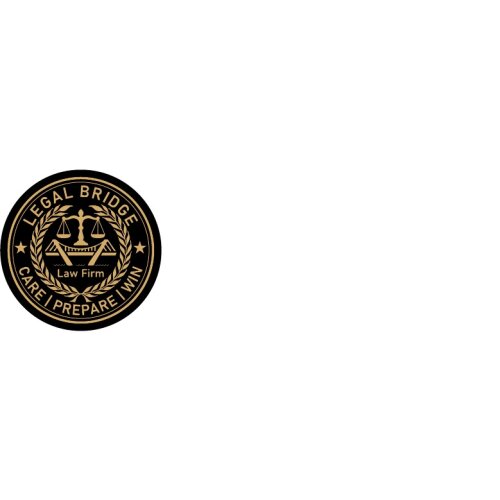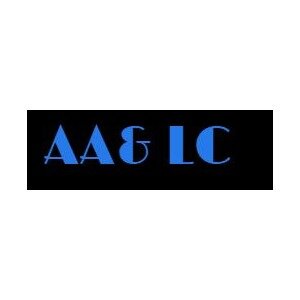Best Sanctions & Export Controls Lawyers in Pakistan
Share your needs with us, get contacted by law firms.
Free. Takes 2 min.
Or refine your search by selecting a city:
List of the best lawyers in Pakistan
About Sanctions & Export Controls Law in Pakistan
Sanctions and export controls are legal mechanisms used by countries to regulate international trade, prevent illegal transactions, and promote national security. In Pakistan, these laws govern the movement of goods, technology, and services across borders and aim to comply with international obligations such as United Nations Security Council (UNSC) sanctions, as well as to maintain the integrity of foreign policy and national security. Sanctions involve restrictions or prohibitions on trade or financial dealings with specific countries, entities, or individuals. Export controls restrict the transfer of certain goods, technologies, or information, especially those that could be used for military or dual-use purposes. These laws are continually updated and enforced by various governmental bodies to align with global standards and Pakistan’s security interests.
Why You May Need a Lawyer
Dealing with sanctions and export controls can be complex and could result in severe legal and financial consequences if not properly managed. A legal professional specializing in this field can help in various situations, including:
- Understanding whether your business or transactions are affected by national or international sanctions
- Ensuring compliance with export control regulations when exporting sensitive goods, technology, or information
- Defending against allegations of sanctions violations or unauthorized exports
- Applying for licenses or seeking exemptions for specific transactions
- Developing internal compliance programs and conducting due diligence on customers or business partners
- Responding to inquiries or investigations by government authorities
- Advising on cross-border mergers, acquisitions, or joint ventures involving sanctioned countries or entities
- Managing reputational risks associated with potential violations
Consulting a lawyer can help protect your interests, ensure compliance, and minimize potential liabilities.
Local Laws Overview
Sanctions and export controls in Pakistan are governed by a combination of local statutes, regulations, and international obligations:
- Export Control on Goods, Technologies, Material and Equipment related to Nuclear and Biological Weapons and their Delivery Systems Act, 2004 - This law restricts the export of certain goods and technologies that could be used in weapons programs.
- UN Security Council Resolutions Implementation Ordinance, 2019 - This ordinance empowers the Pakistani government to implement UN-mandated sanctions, including asset freezes, travel bans, and arms embargoes.
- Customs Act, 1969 and Import and Export Control Act, 1950 - These acts regulate the general control of import and export in Pakistan, including the need for licenses and prohibitions on certain goods.
- Financial Monitoring Unit (FMU) regulations - Under anti-money laundering frameworks, financial institutions are required to monitor, report, and enforce sanctions.
- Ministry of Commerce and Ministry of Interior issue notifications and maintain lists of controlled or prohibited items, restricted destinations, and sanctioned parties.
Violations of these laws can result in criminal or civil penalties, including fines, imprisonment, and restrictions on business operations.
Frequently Asked Questions
What is the difference between sanctions and export controls?
Sanctions are restrictions on economic or financial dealings with certain countries, entities, or individuals. Export controls regulate the transfer of specific goods, technology, or knowledge to foreign parties, especially if they could be used for military or dual-use purposes.
Who enforces sanctions and export controls in Pakistan?
Enforcement is carried out by multiple government agencies, including the Ministry of Foreign Affairs, Ministry of Commerce, Ministry of Interior, Pakistan Customs, and the Financial Monitoring Unit.
What are some common items subject to export controls?
Typically, these include dual-use items, nuclear and biological materials, certain chemicals, advanced electronics, and military equipment.
Does Pakistan follow only its own sanctions, or does it implement international sanctions as well?
Pakistan enforces both its own sanctions and those imposed by international bodies, primarily the United Nations Security Council.
Is it possible to apply for a license or exemption from export controls?
Yes, it is possible to apply to the relevant ministry or department for special permits or exemptions, but approval is subject to strict criteria and scrutiny.
What are the penalties for violating sanctions or export controls?
Penalties may include heavy fines, imprisonment, forfeiture of goods, and loss of business licenses, as well as reputational harm.
Do sanctions and export controls apply to services as well as goods?
Yes, in many cases services, technology transfers, and financial transactions are also subject to these controls.
What should I do if I suspect a transaction may violate Pakistan’s sanctions laws?
Seek prompt legal advice to evaluate the risks and, if necessary, disclose the transaction to the appropriate authorities to avoid more severe penalties.
Are there lists of sanctioned countries and persons available to the public?
Yes, government notifications, as well as lists maintained by the United Nations, are generally available to the public and regularly updated.
Can individual citizens face sanctions or export control penalties, or is it only for companies?
Both individuals and companies can face penalties for violations. It is crucial for anyone involved in cross-border transactions to be aware of these laws.
Additional Resources
If you need further information or wish to stay updated, consider reaching out to or reviewing materials provided by the following:
- Ministry of Commerce - Oversees import and export regulations and licensing
- Ministry of Foreign Affairs - Handles implementation of international sanctions
- Pakistan Customs - Provides guidance and enforcement related to cross-border goods movement
- Financial Monitoring Unit (FMU) - Monitors financial transactions and enforces relevant sanctions
- Export Control Division, Strategic Export Control Division (SECDIV) - Specializes in export control matters related to strategic goods and technologies
- Legal professional associations and business chambers for up-to-date regulatory guidance
Next Steps
If you believe your situation may involve sanctions or export controls, or if you simply want to ensure compliance, here’s what you should do:
- Gather all relevant documentation about your business, transactions, and any parties involved
- Review public notices and guidance from relevant government ministries
- Consult a qualified lawyer experienced in sanctions and export controls law in Pakistan
- Request a compliance assessment or seek legal advice before proceeding with any potentially risky transaction
- Stay informed about updates in national and international sanctions regimes impacting Pakistan
Acting proactively can help you avoid legal trouble and secure your business interests in the evolving landscape of international trade law.
Lawzana helps you find the best lawyers and law firms in Pakistan through a curated and pre-screened list of qualified legal professionals. Our platform offers rankings and detailed profiles of attorneys and law firms, allowing you to compare based on practice areas, including Sanctions & Export Controls, experience, and client feedback.
Each profile includes a description of the firm's areas of practice, client reviews, team members and partners, year of establishment, spoken languages, office locations, contact information, social media presence, and any published articles or resources. Most firms on our platform speak English and are experienced in both local and international legal matters.
Get a quote from top-rated law firms in Pakistan — quickly, securely, and without unnecessary hassle.
Disclaimer:
The information provided on this page is for general informational purposes only and does not constitute legal advice. While we strive to ensure the accuracy and relevance of the content, legal information may change over time, and interpretations of the law can vary. You should always consult with a qualified legal professional for advice specific to your situation.
We disclaim all liability for actions taken or not taken based on the content of this page. If you believe any information is incorrect or outdated, please contact us, and we will review and update it where appropriate.
Browse sanctions & export controls law firms by city in Pakistan
Refine your search by selecting a city.

















